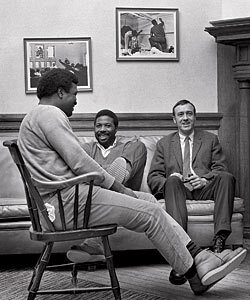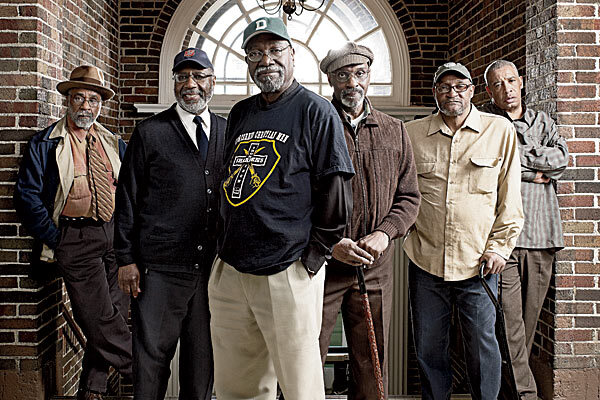Far Far From Home: Alone In the Woods
For many students, coming to Dartmouth required traveling far and wide, which added to the diversity of students. Students were coming from different corners of the country and different backgrounds and Black Students were not an exception to that, but with them being the minority it made the transition from home to college much more difficult. Black students were coming to a predominantly White institution hundreds of miles away from home. There was even a difference in the few Black people who you interacted with because of how they grew up in different areas of the countries. In the 60s the surrounding area of Hanover was more than ninety percent, White, therefore getting basic services such as a haircut was not as accessible to the Black students. Dr. Stefan Bradley addresses the issue of minorities in the New Hampshire area in his book "Upending the Ivory Tower", he mentions in the beginning of his chapter dedicated to Dartmouth that the lack of Black people in the Upper Valley made it hard for policy changes at the government and collegiate level.
Dartmouth's location did not help with the sense of loneliness for Black students. It was in the middle of nowhere, nothing but trees and grass in the distance. Blacks on campus were unable to find a sense of community outside of Dartmouth mainly because of the racial and social differences. Many of the White students came from higher socioeconomic statuses and the town of Hanover holds itself to prestigious standards. Dr Bradley briefly gives the testimony of Julian Robinson and how he flunked out because of trying to fit in with the White students. And for those who attended Dartmouth before the 1970s, Black men were here alone in the woods.
Many of the White students came from higher socioeconomic statuses and had been introduced to higher education and however, higher education in the Ivy League was oftentimes new to Black students. Willie Bogan confesses to being unaware of Dartmouth before they contacted him and how he did not know how Dartmouth looked until his first day. He was a part of many of the Black students who did not take a visit to Dartmouth's campus before choosing the college. Black students were different from their white counterparts when it comes to educational preparation despite programs like A Better Chance White students outnumbered Black students when it came to private schooling for institutions like Dartmouth.
There was a culmination of Black people coming to Dartmouth and this added to the already diverse community at Dartmouth but there also was diversity amongst the Black students. Tyronne Byrd 73' recalls a memory with a classmate from New York and how this classmate insulted him by asking him where his cowboy boots and hat were. Despite this altercation, Black alumni believe the diversity amongst each other was important. Dartmouth added to the diversity by the Dartmouth’s Foundation Years, where they recruited members of the Vice Lords gang in Chicago to become students at Dartmouth. According to the Chicago Magazine and Dartmouth archives, the Foundation Years ran from 1967 to 1973 and provided the youth of Chicago a chance at involvement in higher education.


